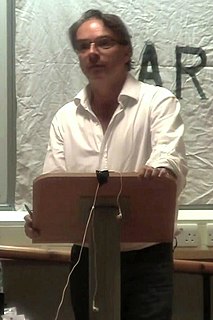A Quote by Frank Zappa
Producing satire is kind of hopeless because of the literacy rate of the American public.
Related Quotes
There are two kinds of humor. One kind that makes us chuckle about our foibles and our shared humanity -- like what Garrison Keillor does. The other kind holds people up to public contempt and ridicule -- that's what I do. Satire is traditionally the weapon of the powerless against the powerful. I only aim at the powerful. When satire is aimed at the powerless, it is not only cruel -- it's vulgar.
The American public highly overrates its sense of humor. We're great belly laughers and prat fallers, but we never really did have a real sense of humor. Not satire anyway. We're a fatheaded, cotton-picking society. When we realize finally that we aren't God's given children, we'll understand satire. Humor is really laughing off a hurt, grinning at misery.
The American public is a very specialized public. The reason it is taken as a realistic film is because inside the fable, I've put that kind of reality in. And it could easily be called, instead of Once Upon a Time in America, Once Upon a Time There Was a Certain Kind of Cinema. Because it was also an homage to cinema.
The link between literacy and revolutions is a well-known historical phenomenon. The three great revolutions of modern European history -- the English, the French and the Russian -- all took place in societies where the rate of literacy was approaching 50 per cent. Literacy had a profound effect on the peasant mind and community. It promotes abstract thought and enables the peasant to master new skills and technologies, Which in turn helps him to accept the concept of progress that fuels change in the modern world.
The rate of growth of the relevant population is much greater than the rate of growth in funds, though funds have gone up very nicely. But we have been producing students at a rapid rate; they're competing for funds and therefore they're more frustrated. I think there's a certain sense of weariness in the intellectual realm, it's not in any way peculiar to economics, it's a general proposition.
At the 1894 ALA conference it was fairly well agreed that the primary goal of the public library must be to teach good citizenship. Libraries recognized that such "Americanization" could be achieved through literacy. Thus, teaching immigrants to read was not just a benefit in and of itself; literacy would also serve the interests of democracy.




































